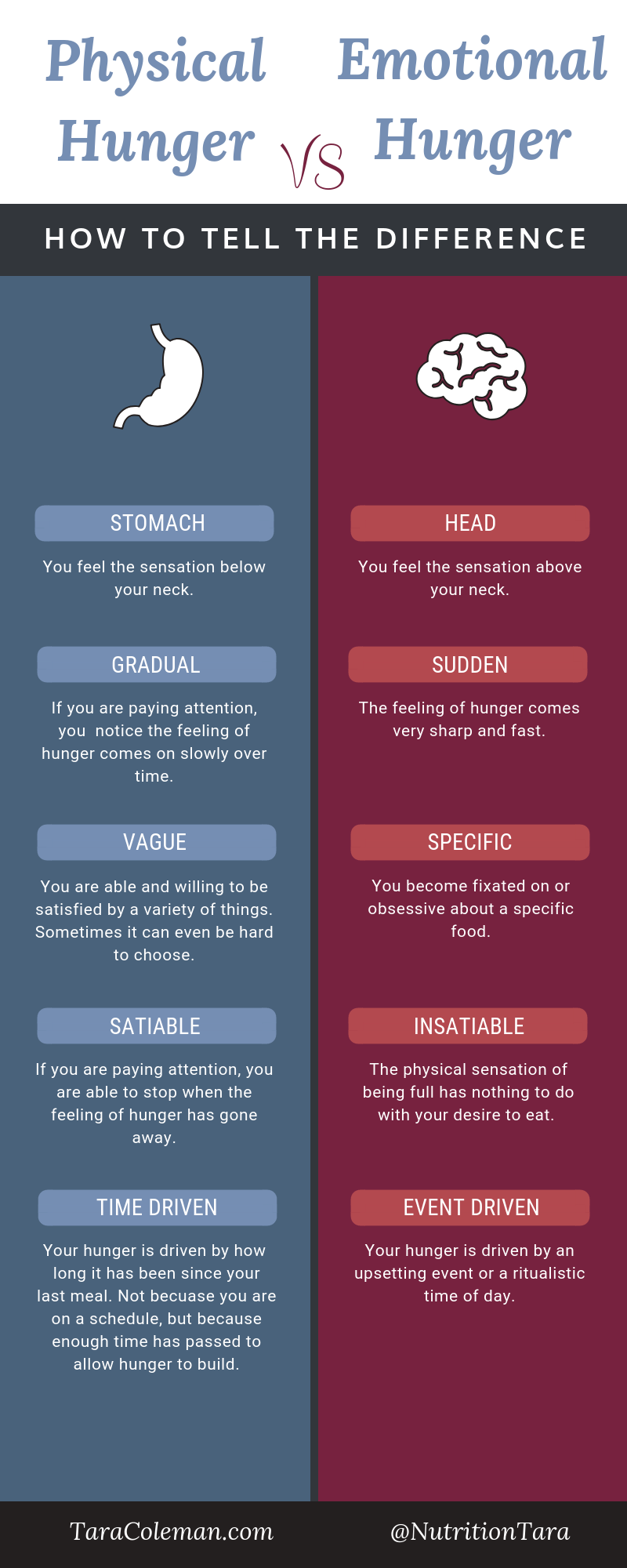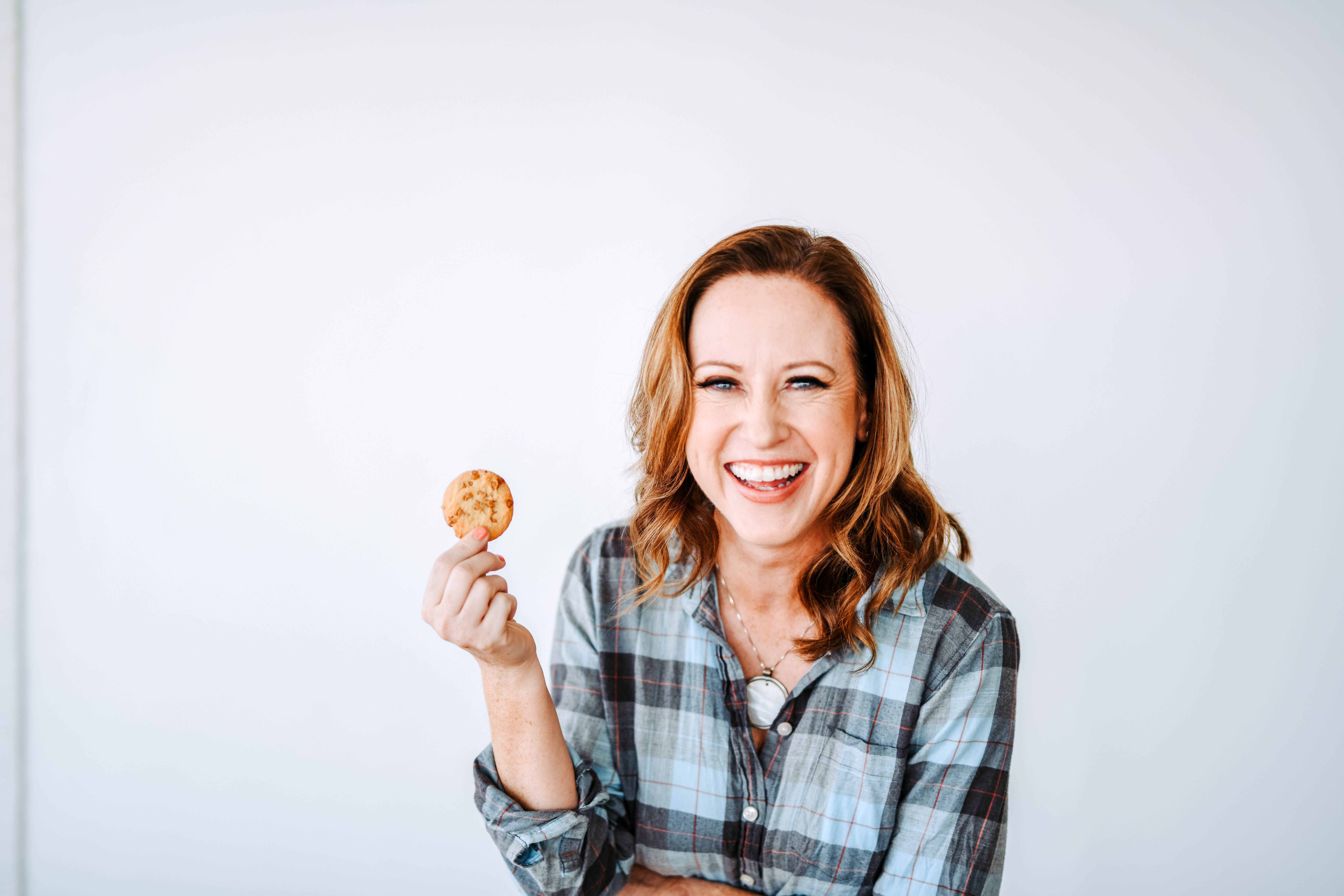 I would say 9 out of 10 of the people that I work with tell me that they are emotional eaters. When I dig deeper I find that although this might be true from time to time, often, they are simply confusing emotional hunger with physical hunger.
I would say 9 out of 10 of the people that I work with tell me that they are emotional eaters. When I dig deeper I find that although this might be true from time to time, often, they are simply confusing emotional hunger with physical hunger.
Now here’s the thing – it is not that physical hunger is good and emotional hunger is bad, they just have different solutions. So, it is important to identify which type of hunger you are dealing with so you know how to solve it.
Next time you are worried that you are emotionally eating, ask yourself these 5 questions to figure out if you are simply hungry.
Where do you feel your hunger?
Physical hunger is usually felt below the neck and emotional hunger is above the neck.
How quickly did your hunger come on?
Physical hunger is gradual, while emotional hunger is sharp and sudden.
Do you have a specific craving, or do you just want to eat?
Physical hunger can be satisfied by multiple types of food. You may even have a hard time deciding what sounds good to you. Emotional hunger is very specific and can even be obsessive in nature. Think: If I don’t have piece of chocolate right now life is not worth living!
When did you last eat?
Physical hunger is driven by time, meaning time has passed since your last meal. Now, this is working under the assumption that your meal was large enough and had a satisfying source of protein and fiber. Emotional hunger is triggered by either an event or a specific or ritualistic time of day. For instance, I always crave a sweet after dinner.
Are you able to stop eating?
If you are eating slowly and paying attention, you are able to stop when you are full if your hunger is physical. Emotional hunger is more insatiable often leading to eating to the point of being uncomfortable or sick.
Now, here is the important part – emotional eating is not all bad. Let’s be honest – it works! If anyone says that it doesn’t, I’m calling them out as a liar. I’m not saying it is a long-term solution, but if you have had a crappy day and want to feel good, indulging in your favorite food is an effective way to feel better. So if you turn to that, there is nothing wrong with you! If it happens occasionally, please don’t worry about it. You will not sabotage your health or weight goals with a more indulgent meal from time to time. I promise.
The problem occurs when this becomes your go-to solution and/or when it conflicts with other goals. Although food may help you to feel better in the interim (and that is OK) it will not solve the root problem. So if it is cyclical or frequent, a good strategy is to build out your toolbox, so eating isn only one of your solutions. This can dramatically cut down on the frequency and any of the negative impact that might come with it.


